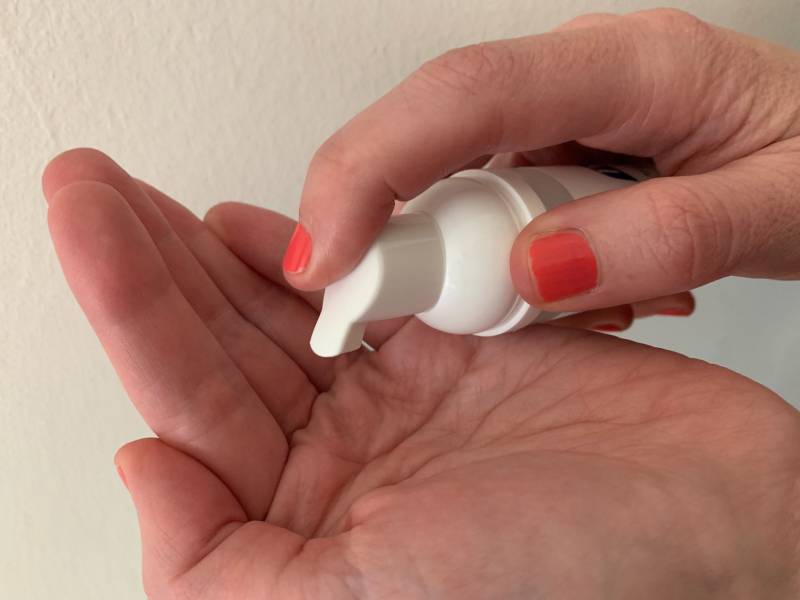Tamimi has studied how well alcohol-based hand sanitizers work protecting against viruses. He says it’s better than nothing when you don’t have other options: “If you are in a car, if you are traveling, if you are in a supermarket, if you are on the outside, then you can use hand sanitizer.”
It should be made with at least 60 percent alcohol. However, if your hands are dirty or greasy, sanitizer will be largely ineffective. It does not do well at removing dirt and grease, which viral particles can cling to.
You also need to use the sanitizer correctly. Read the label to know the correct amount. Rub all over both hands until your hands are dry.
Some products claim to inactivate 99.9% of pathogens. Assuming that’s true, some viable cells will remain on your hands.
“For example,” says Tamimi, “if you have a million pathogens on your hands and you use a sanitizer, the million becomes 10,000.”
Will that be low enough to prevent you from getting sick if you touch your eyes, nose or mouth? It depends on the virus or bacteria. Having fewer pathogens on your hands doesn’t hurt.
So, let’s say you can’t find any in the stores, should you make your own? Instructions are all over the internet.
Experts caution that if you don’t get the ratio right, you might not be protecting yourself.
Tamimi suggests something a little simpler and more fool-proof than the DIY recipes: “Just have a small bottle of alcohol, 70 percent rubbing alcohol.”
He suggests carrying it with you, pouring some on your hands when needed, rubbing them together until dry and then applying some hand lotion. (One safety note: Don’t leave a bottle of rubbing alcohol in a hot car, it could explode!)
This is still a temporary solution for cleaning your hands. Once you’re near a sink again, wash ’em!
And one last point, you may have seen some people joking online about being desperate for a drink and looking at their hand sanitizer. Please don’t try it. It can cause alcohol poisoning and will taste terrible.
Be safe out there.
